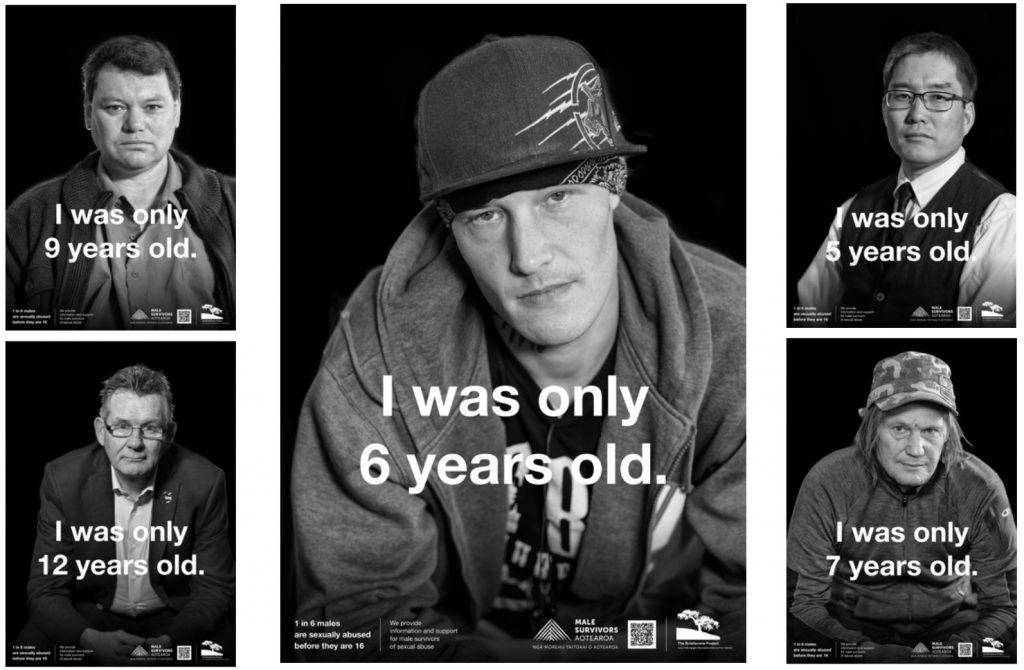Abuse in Care: Police prosecuted fewer than 1 in 10 referred cases
Police have prosecuted fewer than one in ten of the cases referred from the Royal Commission of Inquiry into Abuse in Care.
The sexual harm helpline can be accessed free, 24 hours a day, 7 days a week by phone, text, website, online chat and email.
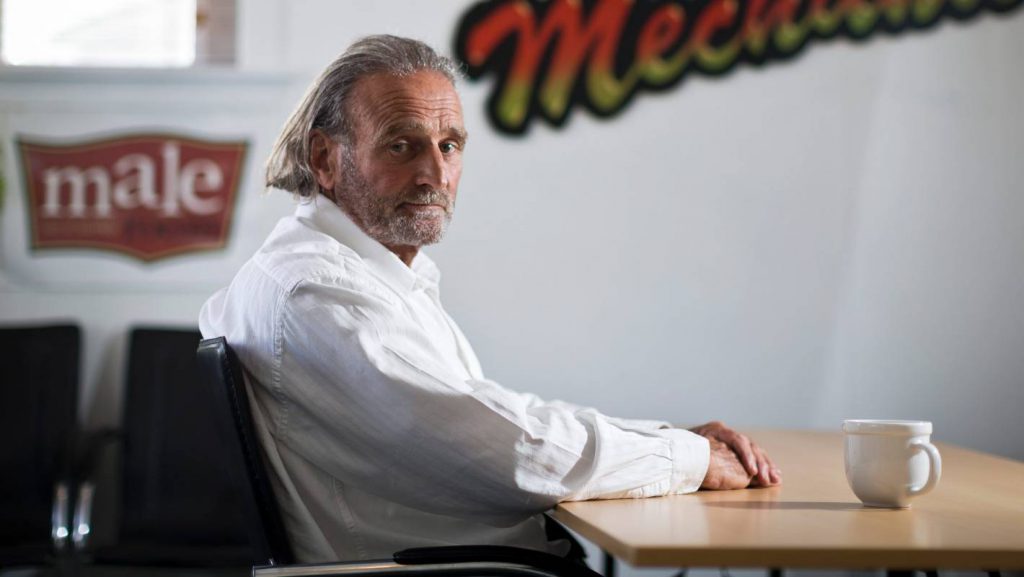 Phillip Chapman, MSA Chair
Phillip Chapman, MSA Chair
“We think sometimes that poverty is only being hungry, naked, and homeless. The poverty of being unwanted, unloved, and uncared for is the greatest poverty. We must start in our own homes to remedy this kind of poverty”
Mother Teresa
Kia ora koutou.
As we hopefully approach the end of another Covid-19 lockdown we reflect on what has been a challenging year for all New Zealanders, but perhaps especially for those who are coping with trauma-related challenges in their life. In a Covid-restricted environment we recognise that life can be particularly challenging for people who have experienced, or continue to experience, emotional, physical, psychological, or sexual violence, many of whom are also impacted by illness, disabilities and/or socioeconomic disadvantage.
I am grateful to the people in our regional service centres who have continued to find ways to support our male survivor community through these difficult times. Knowing that together we have made life better for more than 3,000 New Zealanders, that we continue to make a difference, is what makes us all proud of, and committed to, the work we do every day.
I am encouraged by our new ventures in Te Tai Tokerau and Manukau where we are pursuing new models of engagement with our Māori and Pasifika survivors, mahi that is made possible and energised by the enthusiastic support of the local communities.
We continue to develop our regional capacity and capability as we extend the reach of our peer support services across Aotearoa. And as our national organisation matures, we can look to grow the range of services we offer and be better equipped to “enable the wellbeing of our male survivor community”.
We have made great progress in the eight years since we launched our national strategy. But there is still much to be achieved – onwards
Noho ora mai
Philip
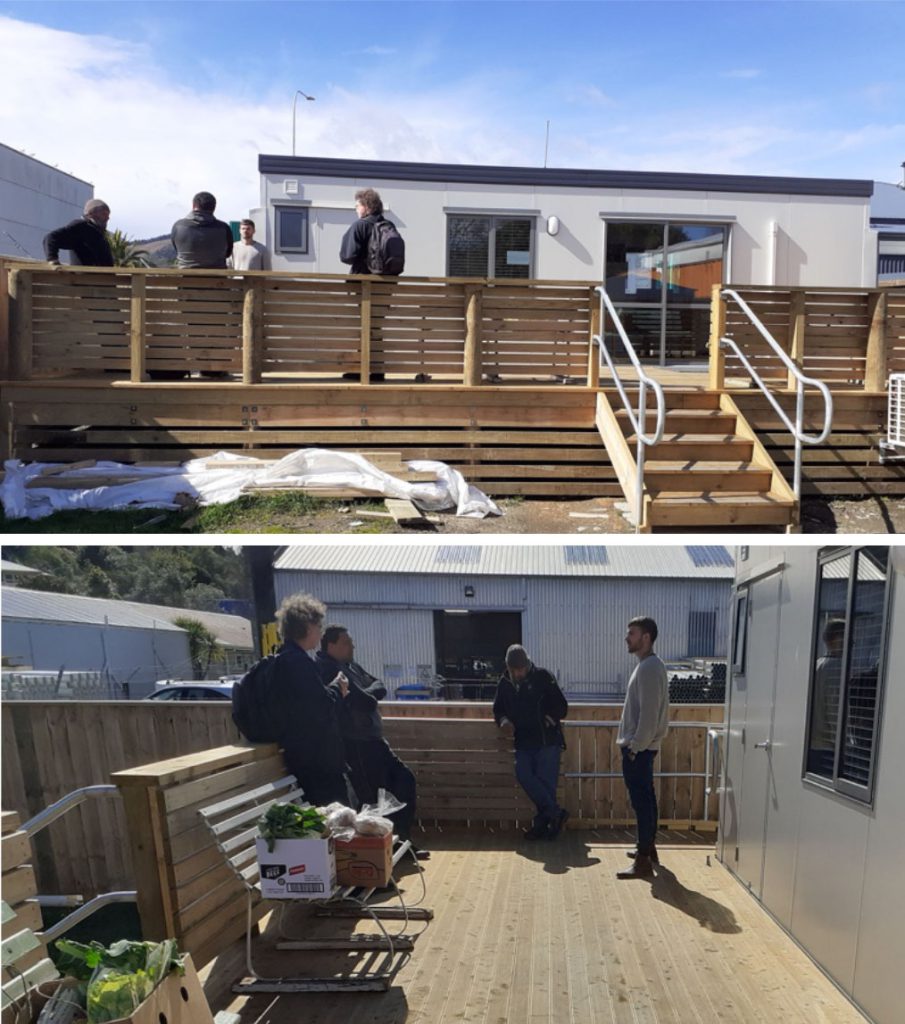
Thanks to the support of the Nelson City Council, Nelson’s Rotary clubs, Housing First and many local ‘tradies and NGO’s “Whare Haumanu” (Safe Haven) will now provide these homeless men with cooking, showering, and washing facilities. ‘Visitors’ will also have access to computer and technology support and a range of trauma support services provided by the Male Room.
Whare Haumanu, which will be managed by Jesse Fitzsimmons, will be officially opened in October.
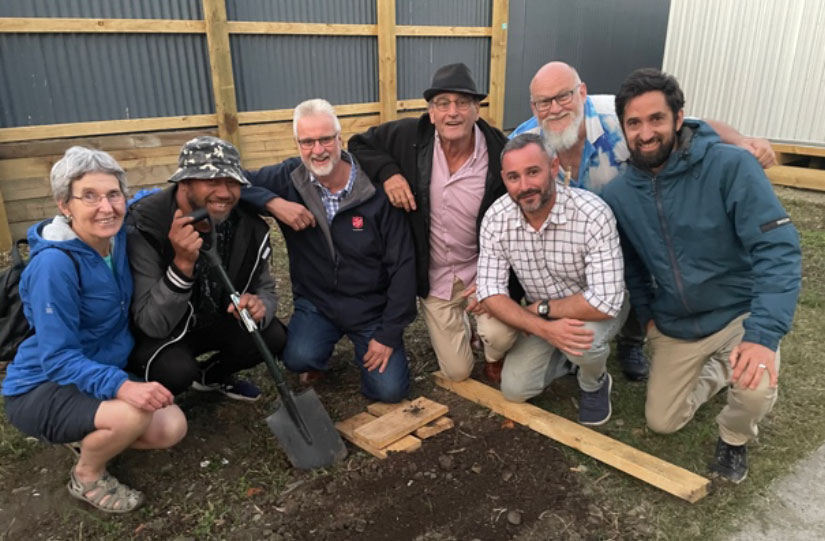
Tama Manuel, with the shovel, helped bury the Mauri stone at the dawn blessing of the site for Whare Haumanu. Others present were Loaves and Fishes coordinator Alison Mountfort, left, Housing First’s Jaap Noteboom, Male Room director Phillip Chapman with manager Louis Chapman and board member Phil Ivamy, and Department of Internal Affairs community advisor Blair Carpenter.
“Establishing a sustainable national network of appropriate high- quality support services for male survivors of sexual violence.”
MSA’s Ambition for the Future
MSA operates as a federation of member organisations. Our role is to provide national advocacy, policy and protocol advice and strategic development support for our member organisations who operate a network of service centres across Aotearoa. Since 2014 we have been focussed on expanding our services to ensure all male survivors could access appropriate services within their region.
2021 has been a busy and exciting period for Male Survivors Aotearoa (MSA) with the establishment of four new service centres in Te Tai Tokerau, Taranaki, Tairawhiti and Hawkes Bay and the extension of our Nelson (Male Room) service across Marlborough and into the West Coast.
When Hawkes Bay becomes fully operational towards the end of the year, we will have 10 service centres supporting 3,000 male survivors across Aotearoa, an achievement that we will celebrate at our upcoming National Hui in Nelson this November (Covid-permitting).
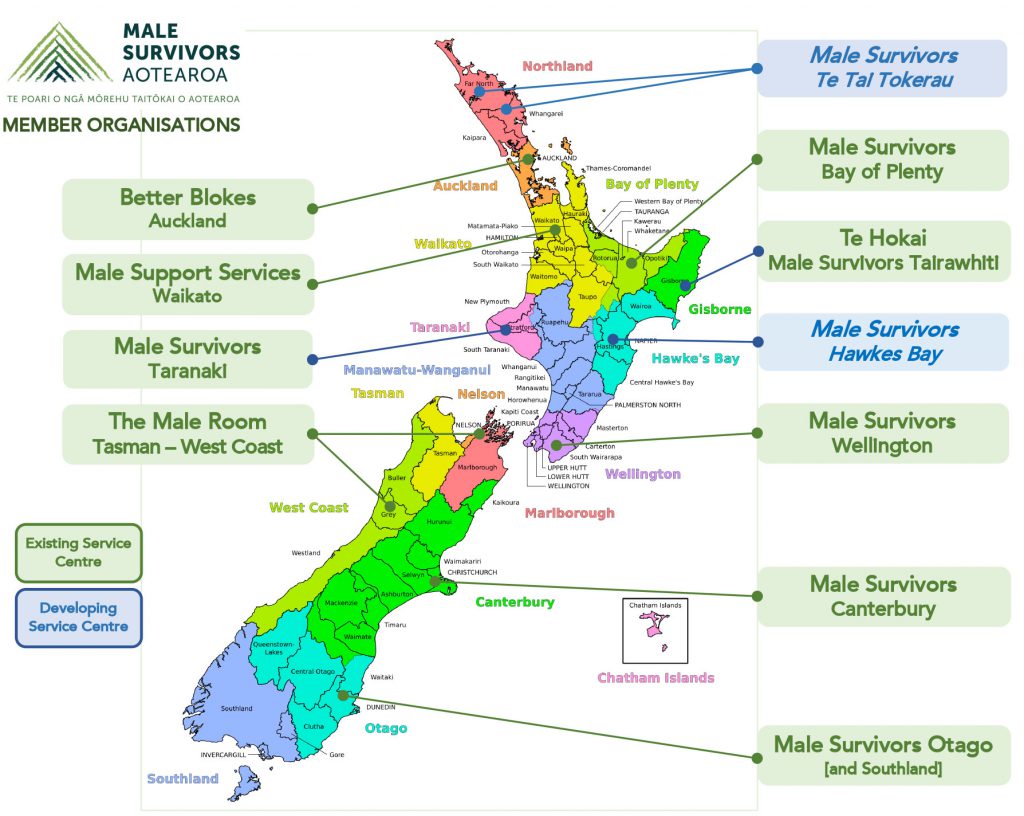
The development of our support services across Te Tai Tokerau in Northland is our most recent adventure. I use the word ‘adventure’ advisedly as we are on an exciting learning journey in the Far North, working with local Iwi to establish a service that meets the expectations of local Iwi and aligns with our national Kia Mārire strategy – effectiveness with Māori.
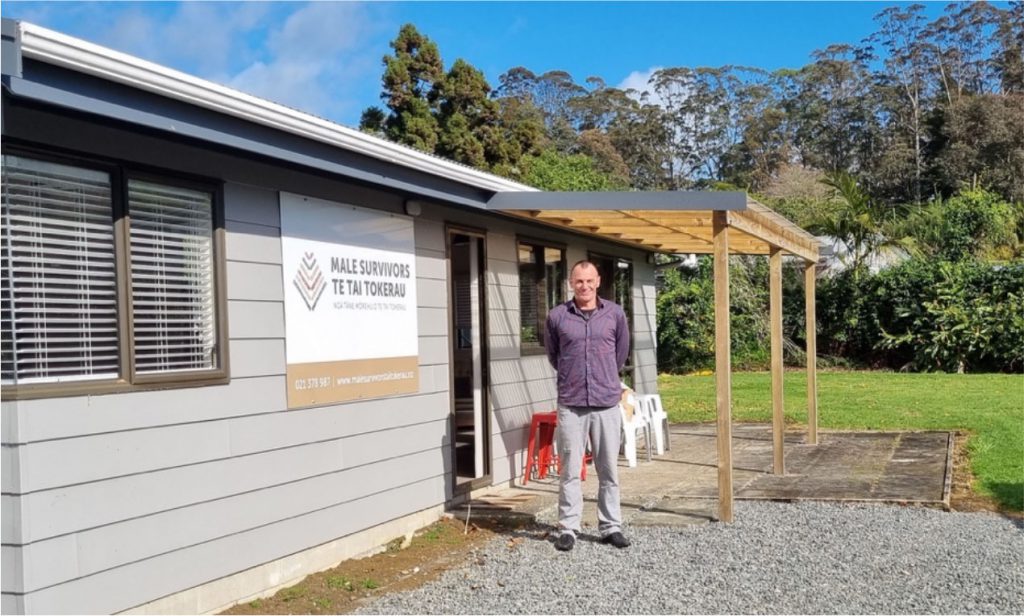
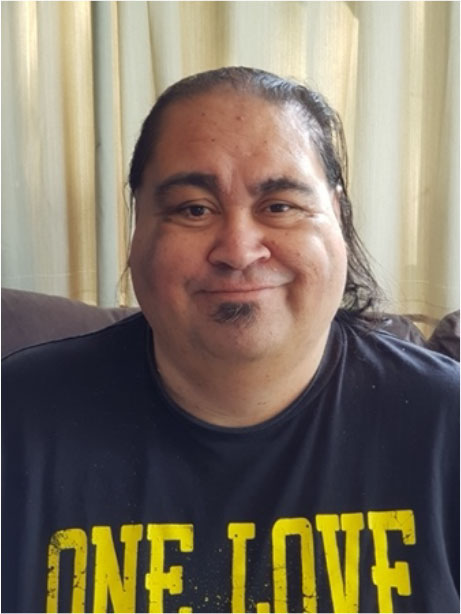
In July 2020 we launched Male Survivors Te Tai Tokerau and in August we established our Kerikeri service centre, Male Support Services Kerikeri which is now managed by Paul Moffat.
Later this year we will open our second service centre – Male Survivors Muriwhenua – based in Kaitaia, which will be managed by Bert Henry (left) and will offer a service led by Māori that will welcome all male survivors and their whanau.
Both service centres will work collaboratively across the region, enabled and supported by the Trustees of Male Survivors Te Tai Tokerau, and with each service guided by a special Committee or Roopu of Trustees and other supporters.
Watch this space!
Tairawhiti welcomes a new support service for their male survivor community. A joint initiative of MSA and the Tauawhi Trust, the service was officially launched in Gisborne in July 2020.
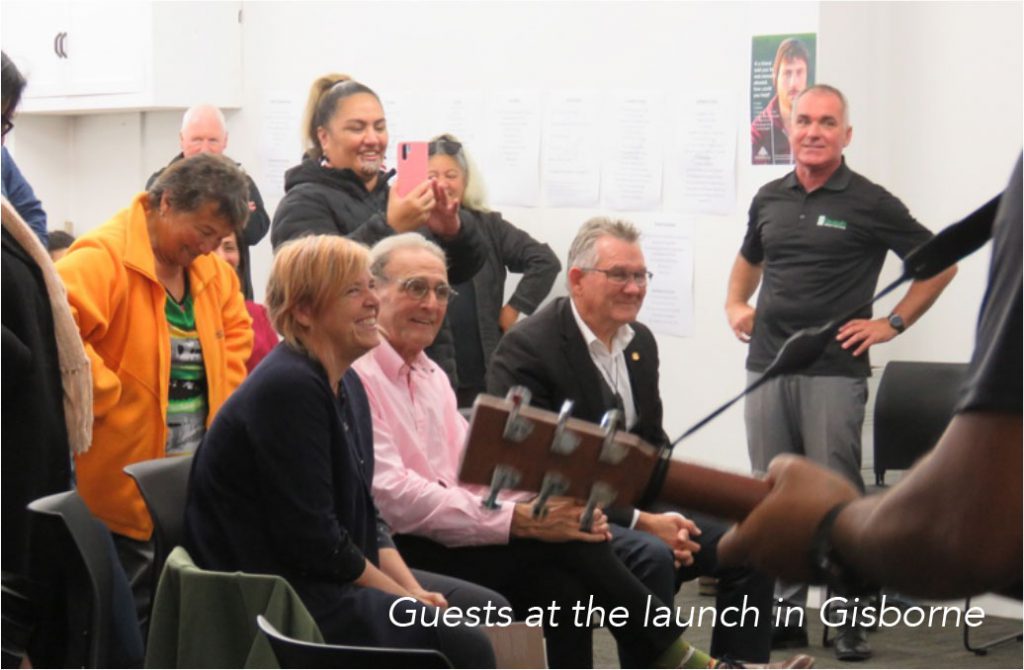
Winton Ropiha (Ngāti Kahungunu/Te Whānau ā Kai) is a former Tauawhi Men’s Centre counsellor and will lead the Tairawhiti service.
Winton will be ably supported in his new role by Tim Marshall and the Trustees of the Tauawhi Charitable Trust.
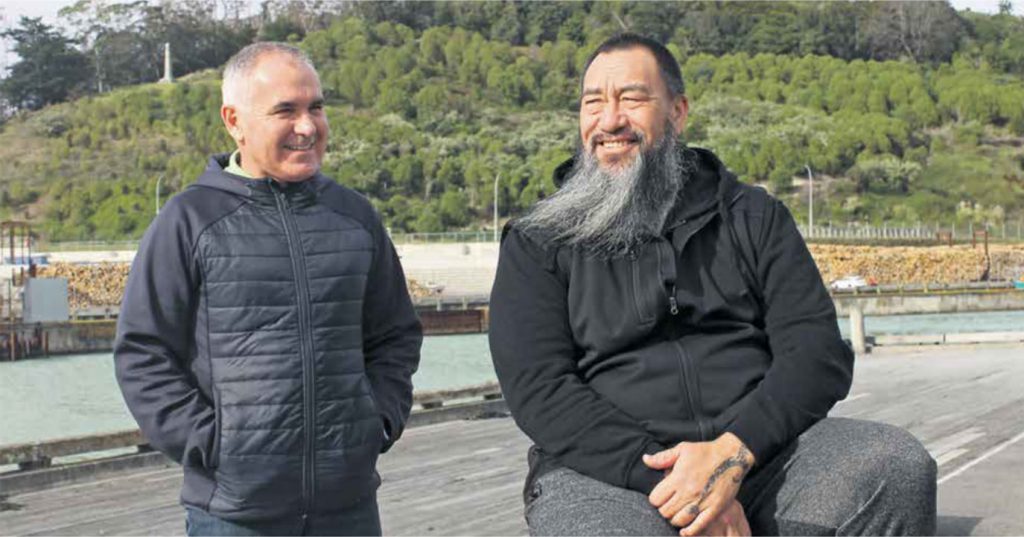
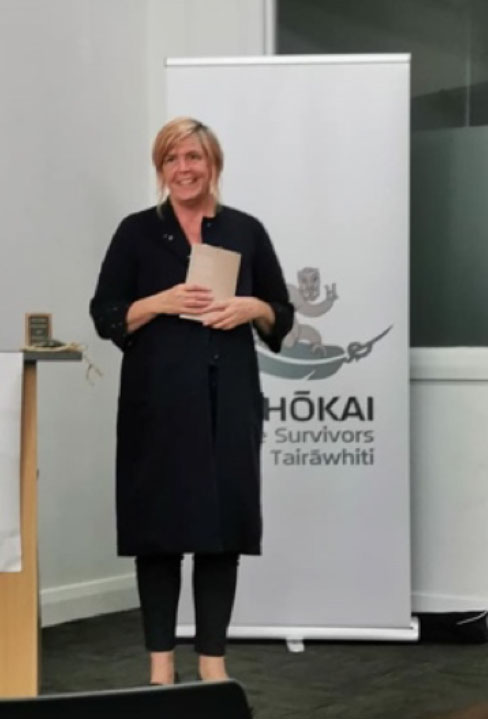
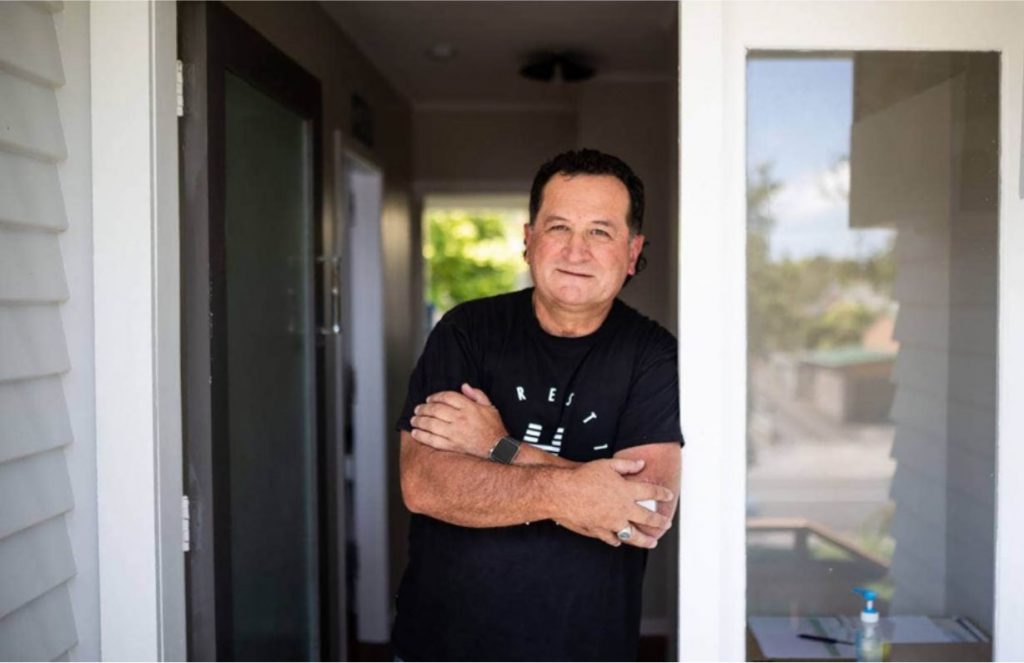
Mike Subritzky opens the doors of his new service centre in New Plymouth.
Based in Merrilands, Ngamotu, the centre will provide support services to male survivors across the Taranaki.
Mike, who comes from an Army chaplaincy background, is a qualified counsellor and is supported by a local Board of Trustees.
Since opening in August 2020, the centre is already working with more that 30 men from across the Taranaki, hosting regular support group meeting, and looking to recruit another peer worker to expand its services across the province.
The Taranaki centre works with Male Support Services Waikato to provide an important induction support service for new peer workers from other MSA member organisations. Mike has hosted Bert Henry and Paul Moffat from Te Tai Tokerau and will soon host new peer workers from our Bay of Plenty and Hawkes Bay centres.
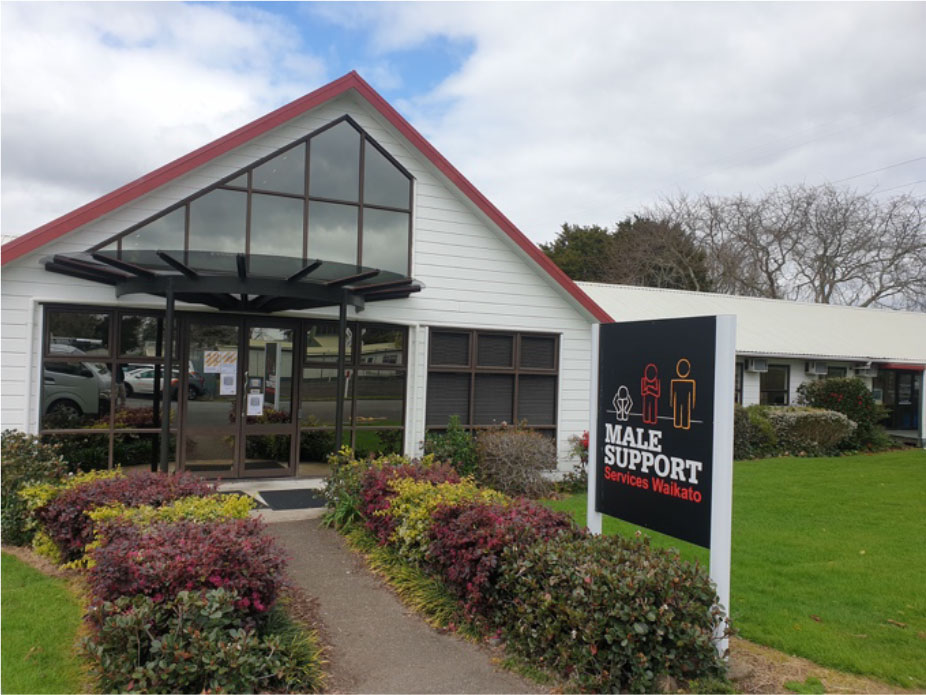
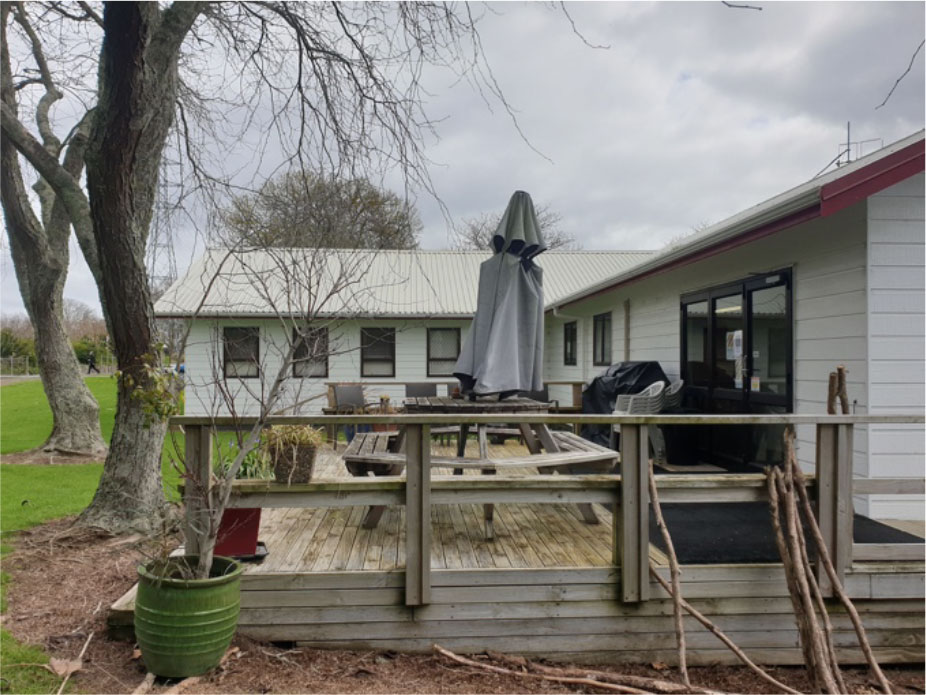
Mike Holloway has expanded his Hamilton-based operation in response to an increasing demand for male survivor support services across the Waikato. Male Support Services Waikato (MSSW) now operates from two facilities in Ruakura and Frankton offering peer support, counselling, and social work services to more than 600 active clients.
The Ruakura centre has 9 counselling rooms, including one for Family/whanua and children, a group meeting room with a separate entrance, a large kitchen-diner, a library and 3 staff offices. Facilities at Frankton include 4 counselling rooms and a group meeting room, access to a commercial kitchen and a community hall that operates as a food bank during the day.
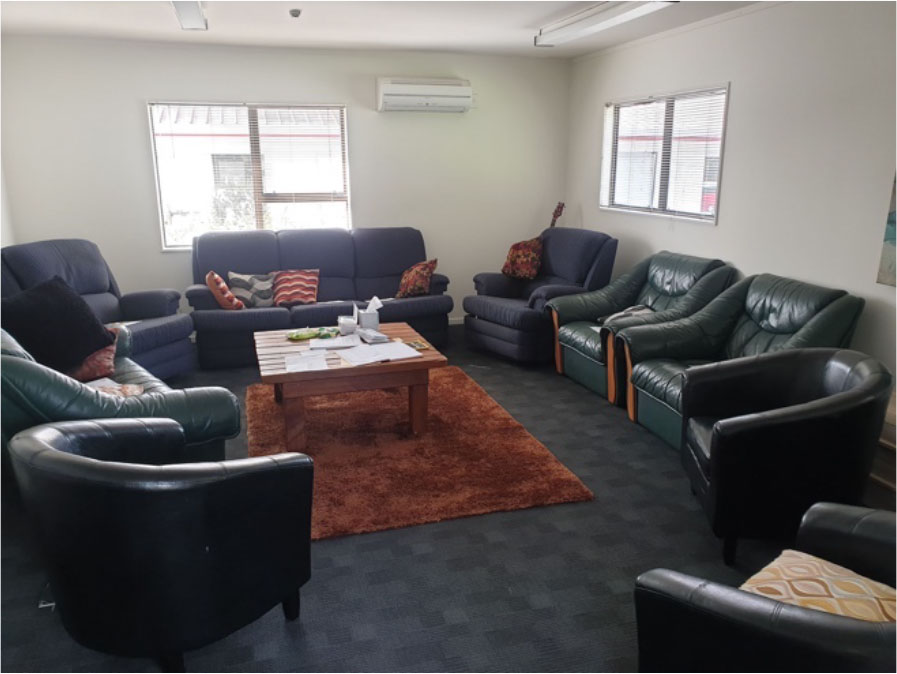
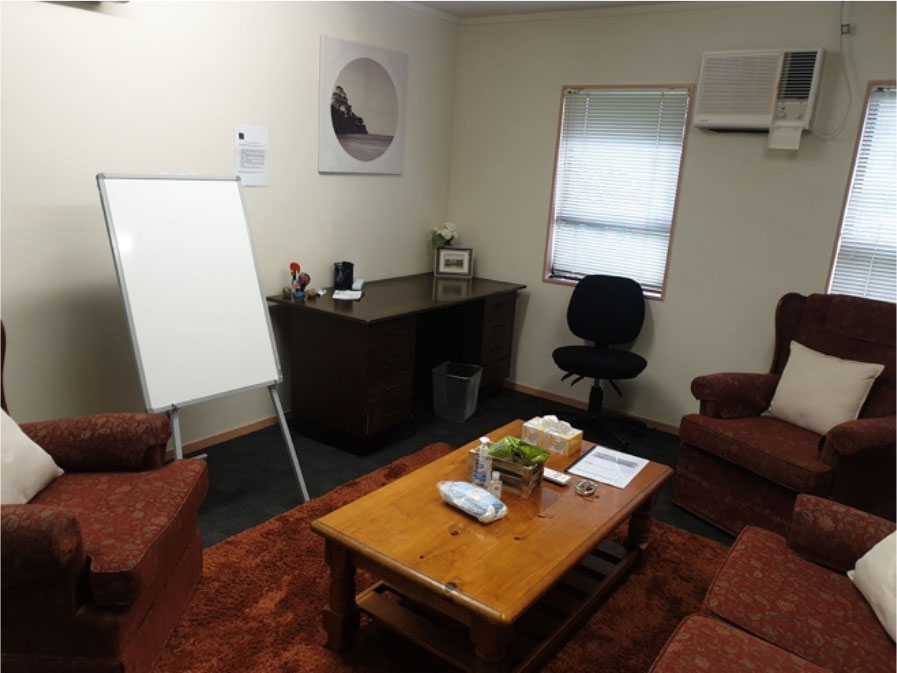
Centre staffing now includes 5 full time peer workers, one of whom operates as a remote rural peer worker, a substantial group of counsellors who provide ACC counselling services and 3 administrators.
Next steps for MSSW include the development of a kaupapa Māori service, expanding their peer group work and increasing their support work within the three local prisons.
And perhaps the building of a new, MSSW-owned, purpose-built facility to underpin future growth – feasibility in progress.
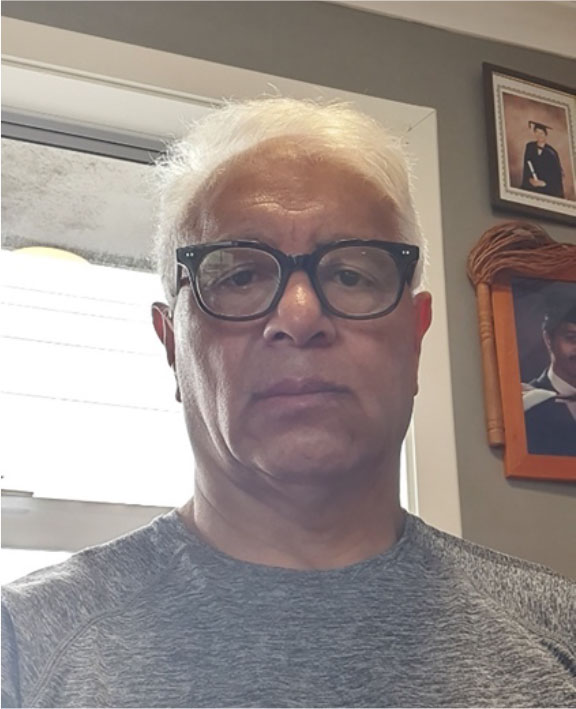
Poutoa Papali’i joined Better Blokes (Auckland) in 2020, bringing both his Pasifika and Maori connections to support the establishment of a new service In Manukau.
Born in Samoa, Poutoa has lived in Otara ever since his migrant parents moved there in the early 60`s and is now a proud (great) grandad with 8 grandchildren and 1 great grandchild. He is graduate of Auckland University (B. Arts) and, following a career in the public and private sectors, he began working with community service organisation in 2010. In 2016 he developed his own program, working with men on violence intervention and anger management.
Now he works with the male survivor community in Manukau, where he brings a wealth of cultural knowledge and connections to build an effective service for the local community.
All our service centres MMO) are currently implementing a simple survivor feedback questionnaire to help us evaluate the survivor experience of our support services. Early results are encouraging with feedback from three MMO’s showing satisfaction ratings in the range 4.1 – 4.5 on a satisfaction scale where 1.0 is low and 5.0 is high. The format of our current survivor survey can be found here MSA-CLIENT-SERVICE-ASSESSMENT-3.0
The federal organisation of Male Survivors Aotearoa is secured by the membership agreements we have with each service centre (Member Organisation – MMO), which require compliance with our national policies. The primary aim of policy compliance is to achieve service quality and consistency across the country. Many of our policies are also aimed at assuring the wellbeing of our people, which is clearly critical to enabling them to improve the wellbeing of the survivors they work with.
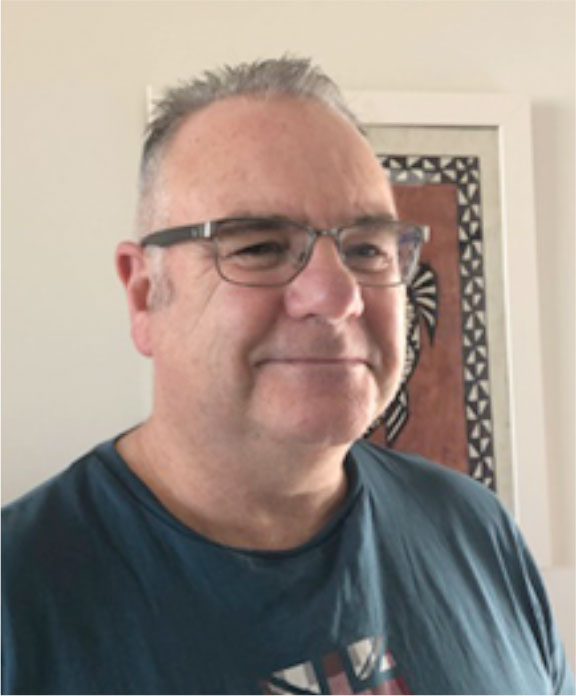
Compliance with our national supervision policy is key to assuring that our national workforce is well supported to deal with the many challenges they face in the roles they perform every day. The MSA Board engaged Mike Cagney (MSA Trustee) to conduct our first policy assurance review. I am pleased to report that his engagement with managers, supervisors and MMO chairs, was well-received and will result in substantive improvements in supervision practices across the country and some policy improvements.
Mike is also MSA’s very active voice on TOAH_NNEST (Network Ending Sexual Violence Together) representing all MMO within a coalition of sexual violence sector organisations.
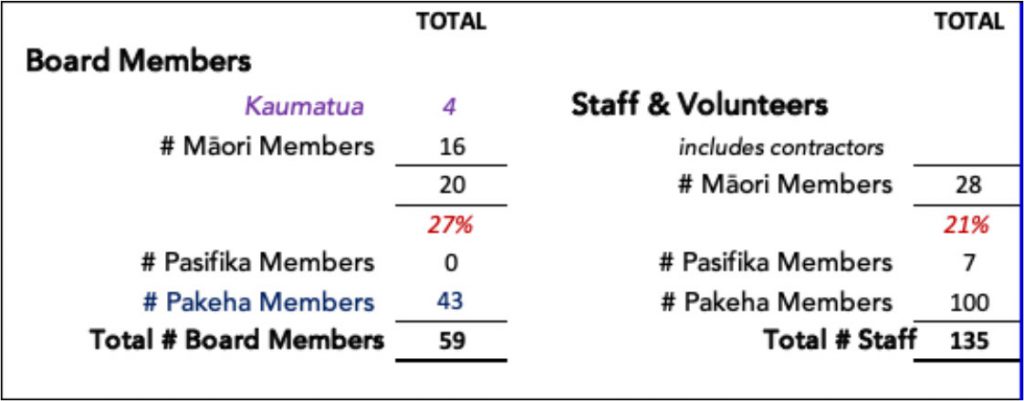
As part of our Kia Mārire strategy, the quarterly reports of our MMO’s now include breakdown of governance and workforce into Māori and Tauiwi. We were pleasantly surprised by our first report which shows that Māori form 27% of our national governance and 21% of our national staffing.
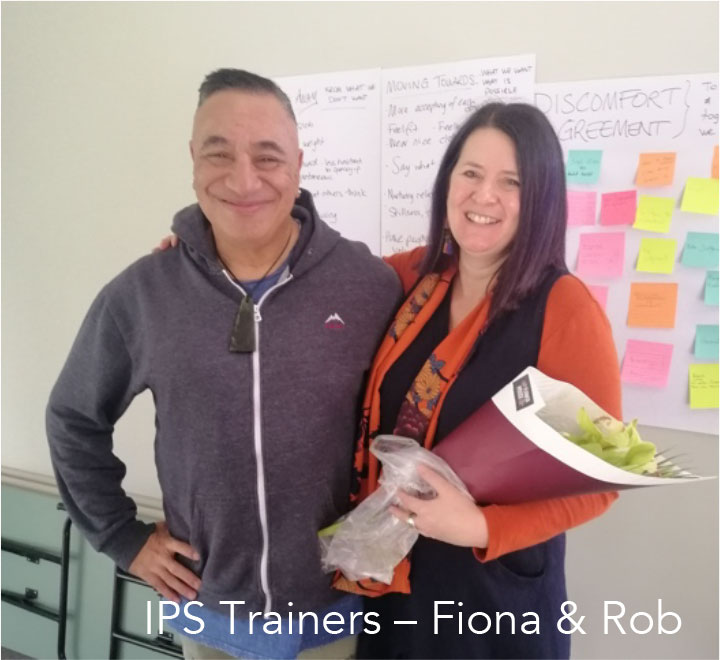
We continue to invest in the development of our national peer support capability with another 20 participants completing Intentional Peer Support (IPS) training. Men from 10 service centres attended the 5- day intensives at Oxford in Canterbury and Dawson Falls under Mount Taranaki. The Taranaki course was interrupted on day two by the current Covid-19 lockdown and was completed on ZOOM! A special thanks to our IPS trainers Fiona Clapham-Howard and Rob Gray with course support from Mike Subritzky.
Since launching our education and training program
in 2019, MSA have trained more than 70 peer workers including several professionals and collaborators that support our work.
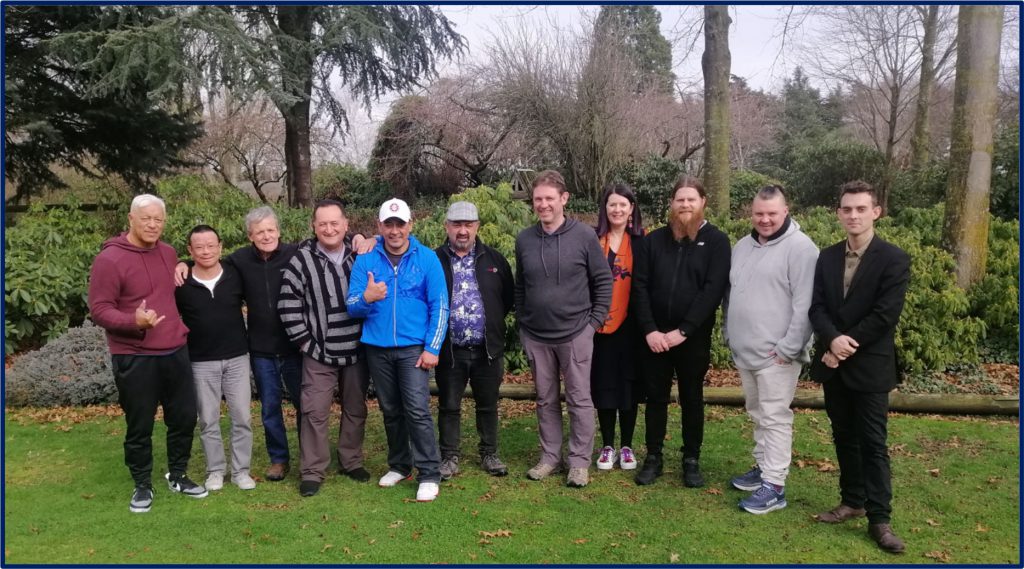

In May we held our first national training session on Hosting Peer Support Groups.
Twelve of our service centre managers and/or senior peer workers participated in a 5-day intensive-residential and pilot version of this new programme, which was developed by our Auckland team at Better Blokes and facilitated by Dave Passal and Dave Puddephat.
The positive feedback received from the facilitators, participants, and our observer (Fiona Clapham-Howard) will guide the further development of the programme, which we plan to host on an annual basis.
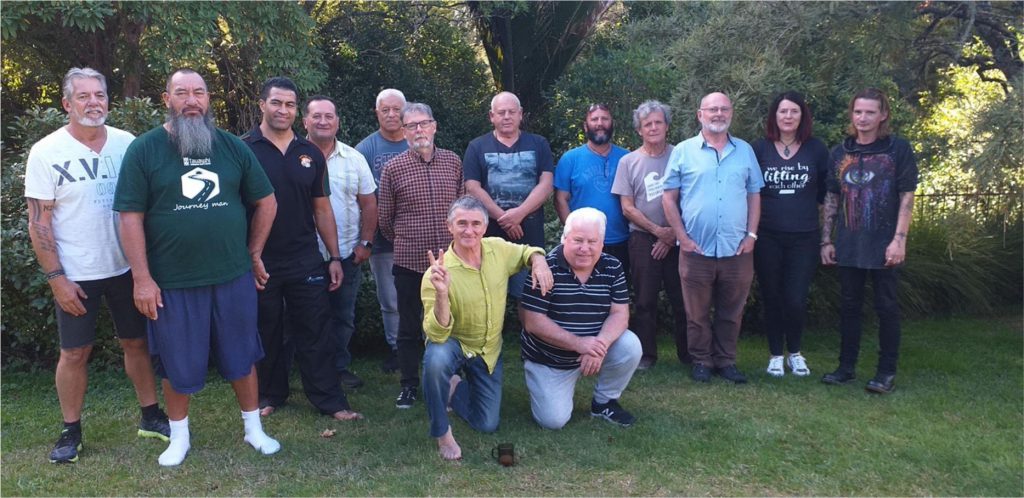
MSA communications has been active facilitating the development of websites for our new MMO’s in Te Tai Tokerau, Taranaki, and Tairawhiti. A special thanks to Cy Messenger (right), who is also a Trustee of Male Survivors Bay of Plenty, and the team at Responsive for their web development work and ongoing technical support for these service centres, including our Otago and Bay of Plenty MMO’s, and the current revamping of the Male Room (Nelson/WestCoast) website.
Check out these new websites
We have prepared some new A2 (very large) posters that are intended to support the launch of our Bristlecone exhibition – an exhibition of male survivors and their stories collected by the Bristlecone Project. This project has been delayed due to Covid-19 impacts and is unlikely to be launched until next year. A simple, powerful message…our grateful thanks to the survivors who agreed to be part of this campaign.
PLEASE DO NOT COPY THESE IMAGES…They are entrusted to MSA by the survivors pictured for use with the MSA Bristlecone campaign
